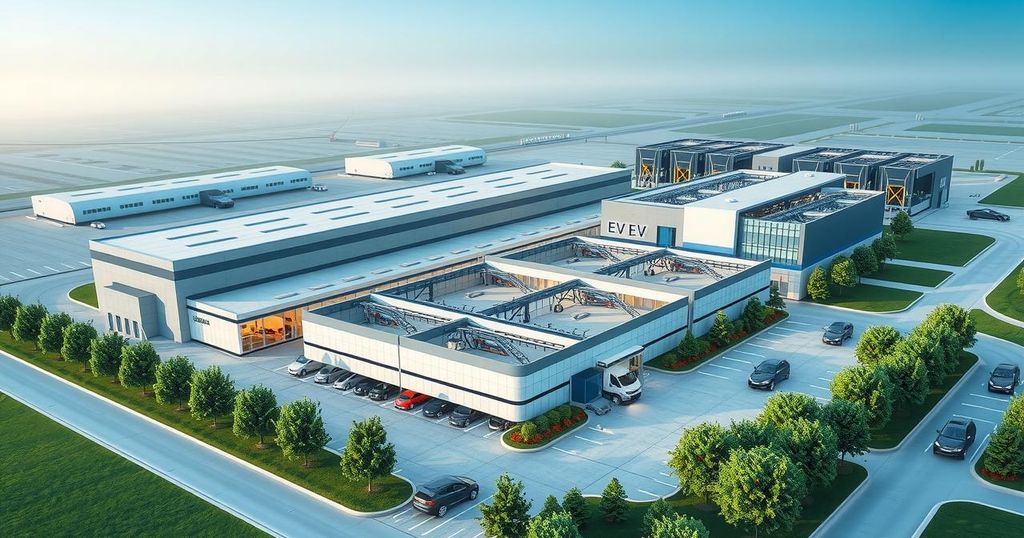BYD Begins Electric Vehicle Production at Camaçari Plant in Brazil

- BYD officially starts production at its Camaçari plant in Brazil.
- The first model assembled is the BYD Dolphin Mini, also known as Seagull.
- BYD plans to create 10,000 jobs and has already employed 1,000 workers.
BYD Starts Electric Vehicle Production in Brazil
Production has officially begun at BYD’s newly established plant in Camaçari, Brazil, marking a significant milestone for the company as it is their first electric vehicle (EV) manufacturing facility outside of China. The inaugural assembly line has already seen the first model, the BYD Dolphin Mini, popularly referred to as the Seagull in China. Along with this, the facility will also produce the BYD Song Pro and the King (also known as the Qin Plus DM-i). This development is part of BYD’s strategy to expand their footprint in the global EV market and cater specifically to the growing demand in Brazil.
Camaçari Plant Features and Job Creation
Built in a former Ford factory, the Camaçari plant features an impressive setup with 26 warehouses and an annual production capacity of 150,000 vehicles. The company acquired this facility in March 2024 for about R$300 million, equivalent to roughly 55 million USD, and has committed to investing a total of R$5.5 billion (about 1 billion USD) in the region. So far, the company has already invested R$1.4 billion, and estimates suggest that the plant will create around 10,000 direct and indirect jobs, contributing significantly to the local economy. At the moment, approximately 1,000 workers are currently employed at the facility, and during a recent media event, BYD announced they plan to create 3,000 additional positions.
Localization and Tariff Challenges
The facility will not only assemble battery electric vehicles (BEVs) but also plug-in hybrid vehicles (PHEVs), which is a noteworthy step for BYD as they adapt to the Brazilian market needs. It’s worth mentioning that the production here operates using a semi-knock-down (SKD) approach, allowing significant vehicle components to be shipped from China for local assembly. Further enhancing localization efforts, BYD has made strides in partnering with local suppliers, such as Continental, who will manufacture tires in Brazil. Additionally, the launch of this plant in conjunction with Brazil’s raised tariffs on electric vehicle imports poses a challenge, as BYD seeks to lower tariffs on SKD vehicles from 25% to 10%.
Labor Violations and Global Expansion Plans
Unfortunately, the plant has faced scrutiny amid allegations of severe labor violations linked to its construction. In May 2025, Brazilian prosecutors initiated a lawsuit against BYD and its contractors, reportedly investigating cases of human trafficking and working conditions that were described as akin to slavery. Following these allegations, Brazilian authorities rescued 220 Chinese workers, a situation highlighting the complexities of labor practices within global supply chains. Meanwhile, BYD continues to push forward with its expansion plans, even securing approval for the expansion of its Shanwei plant back in China, which will focus on producing more KD kits to meet international demand.
BYD began operations at its Camaçari plant in Brazil, emphasizing local job creation and vehicle assembly through an SKD method while also addressing allegations of illegal labor practices. The company is also focused on local partnerships to enhance production and mitigate tariff impacts on the increasingly competitive electric vehicle market in Brazil.




